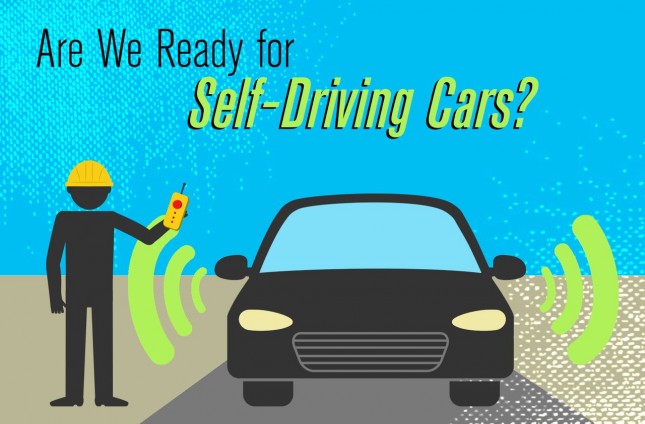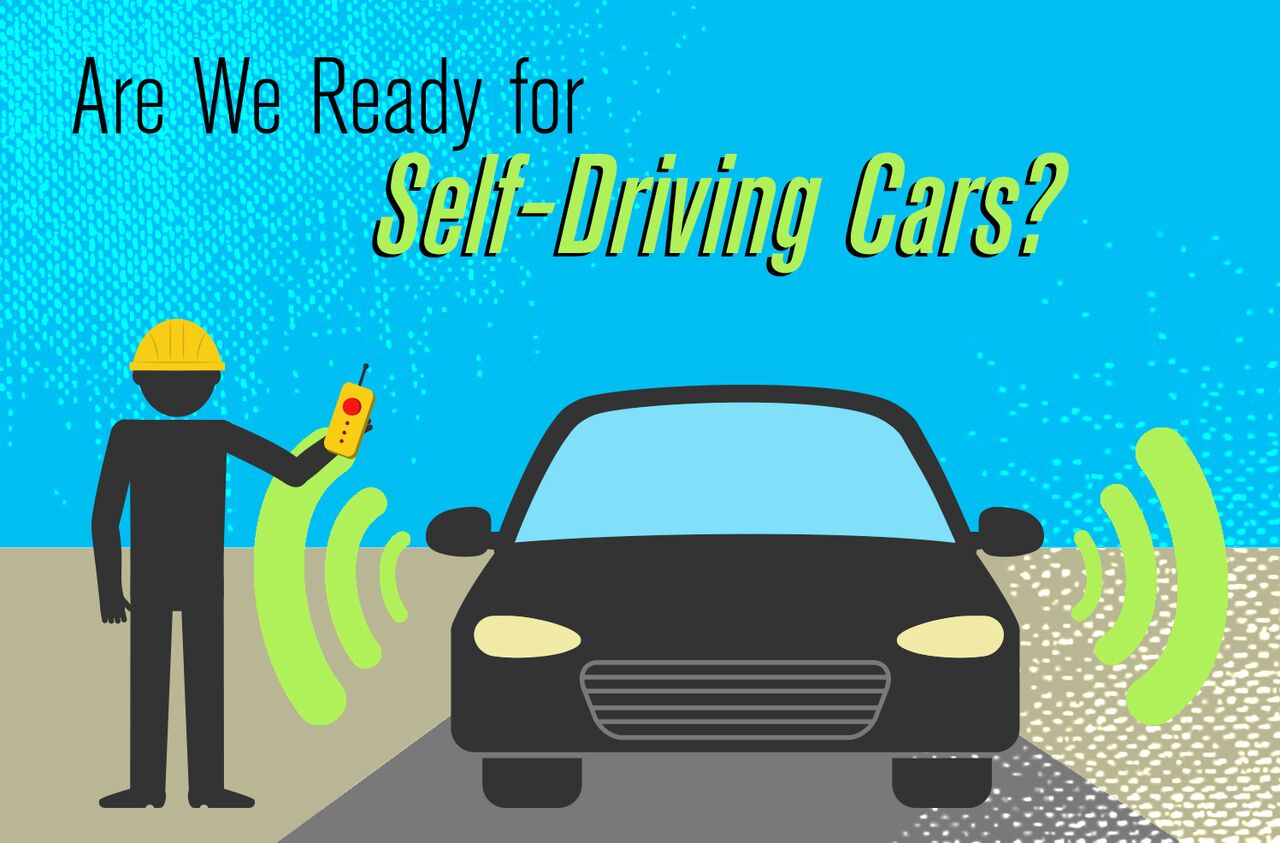
In the last year alone, we have made some incredible technological advances towards self-driving cars. In March, a modified Audi Q5 made the trip from San Francisco to New York in driverless mode 99 percent of the time, according to the Delphi engineers in charge of the project. Similar to the race to the moon or the cell phone, every technology company is charging forward in pursuit of the ultimate self-driving vehicle. Although the technology seems to be rapidly moving forward, how ready is our society for this drastic step into the future?
A self-driving car potentially presents a safer and possibly more efficient way to travel. The computer powering the car wouldn’t get distracted by things like children in the back seat or cell phones and wouldn’t experience road rage or frustration at other drivers that can often cause accidents. It can calculate traffic flow, braking speed, and stopping distances with mathematical precision. The array sensors a self-driving car has to come equipped with, allows it to sense pedestrians, buses, cyclists, as well other vehicles on the road. When you begin to get more self-driving vehicles on the road, they can even talk to each other.
However, there is still plenty the car cannot anticipate. Humans have a tendency to be erratic and unpredictable at times. Anything from a cyclist or child charging into the middle of the road or another driver’s road rage could cause a potential problem for the independent machine on wheels. While researchers and engineers are developing a system in which the car would be able to interpret and react to certain, tough situations, like choosing between swerving and hitting a child in the road or an oncoming vehicle. Another potential side-effect of a driverless world would be the decline in the personal car insurance industry. While most experts agree that this decline is inevitable if the auto industry continues to move towards autonomous vehicles, no one can say when we will see its effects.
There is also the question of the taxi/Uber market, which would inevitably be crushed by the advancement of self-driving vehicles. Experts predict that within a couple decades, autonomous vehicles will be the norm. If you’ve ever been in the back of a taxi with a driver speeding through the packed streets of Kansas City and felt that gripping fear for your life, than self-driving vehicles may not seem like such a bad idea! Until you take into account the 200,000+ drivers and chauffeurs that will lose their livelihood. If we progress towards driverless taxis, then we could also potentially move towards autonomous transportation of goods and the 3.5 million truckers that deliver them. The argument could be made that we have to move forward for the greater good of society.
At the heart of the autonomous revolution is the vision of a seamless and smooth transportation system that allows the freedom and independence that comes with owning your own vehicle and the safety and ease of transportation by flying or train. Having a driver has always been a luxury afforded to those elite and wealthy few. Now, we see a world on the horizon where that is an option available to the middle class, and eventually to everyone. The question is whether everyone will embrace it. Driving is a privilege in our society that gives us a sense of independence and freedom. Are we ready to give up that control for an overall safer world?
http://blogs.findlaw.com/





No Comments